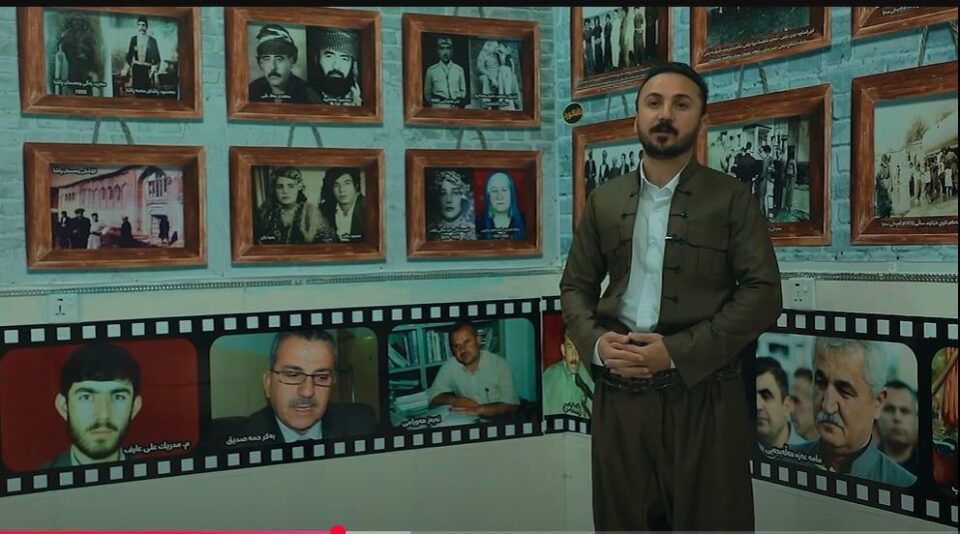A young man from Halabja has made it his mission to preserve the city’s rich history and cultural heritage by opening a gallery featuring a vast collection of 5,000 photographs and archives. The Jalal Azabani Gallery, which opened in 2022, showcases the artistic contributions and notable figures from Halabja, including artists, religious leaders, and influential personalities.
The gallery is named after Jalal Azabani, a poet and member of the Ranjdaran Association who lived through the time of Halabja’s chemical attack. Born in 1964 in the village of Bakrawa, Azabani was martyred during the attack, and both his grave and his poems were lost. Despite this, his artistic legacy lives on through the gallery, which also highlights the spirit of coexistence among Halabja’s diverse religious communities, including Islamic, Kakai, Yarsan, and Jewish figures.
Aram Shamerani, a young Halabja native, is the driving force behind the gallery. He began collecting photographs in 2003, recognizing a cultural gap in documenting Halabja’s history. After nearly two decades of effort, he opened the gallery in 2022 as a purely volunteer project. Shamerani emphasizes the gallery’s role as a vital center for collecting artifacts, particularly those from artists, painters, religious figures, and athletes, making it the first gallery to open since the uprising.
Among the gallery’s most valuable items is an assortment of historical photographs. One of the oldest images dates back to 1890, showing the Jaf lords traveling to Turkey by mule. Another significant photograph depicts the lords of Shewa Kalla from 1911. Many other photographs document the time of Halabja’s chemical attack and the aftermath. Each photograph is carefully annotated with relevant historical context, providing visitors with a deeper understanding of Halabja’s heritage.
Today, the gallery is an important cultural landmark, drawing visitors from outside Halabja and serving as a testament to the city’s resilience and rich history.


